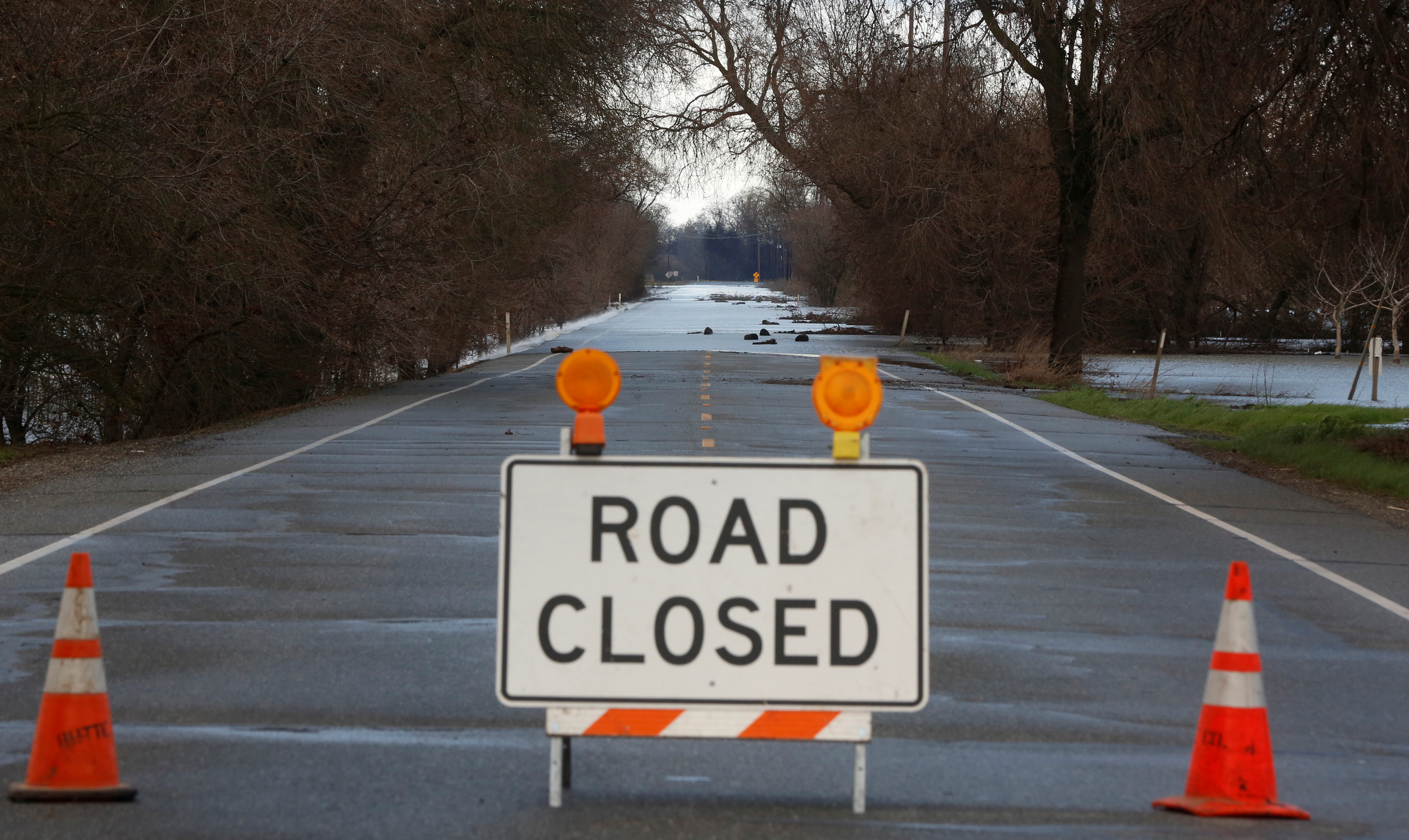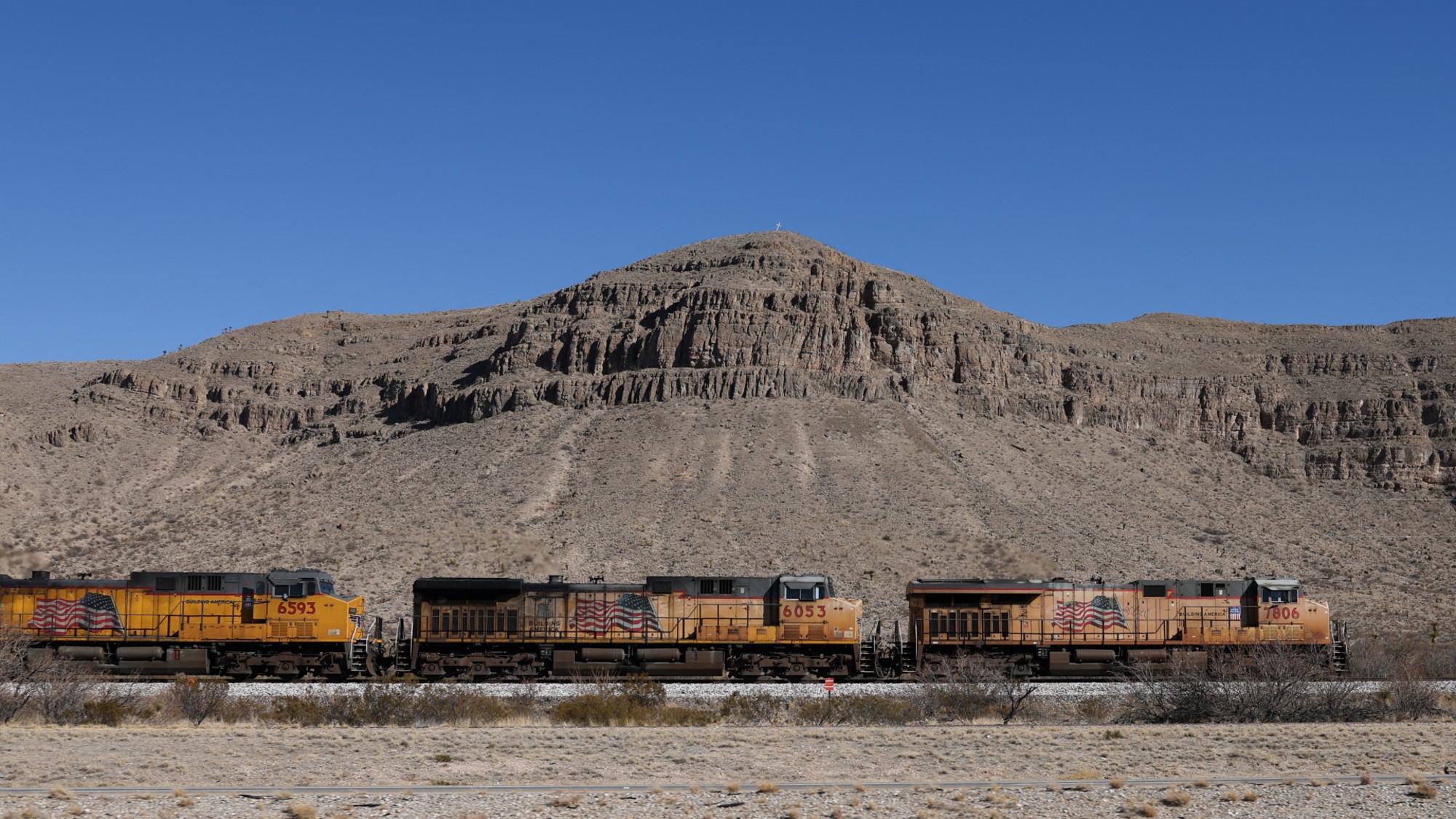Why Trump's infrastructure plan will crash and burn like the AHCA
After his health bill debacle, Trump will find infrastructure easy, right? Wrong.


The Republicans' dream of repealing and replacing ObamaCare crashed and burned on Friday. As ideological bickering within the GOP rose to crisis levels, House Speaker Paul Ryan had to pull the American Health Care Act before it even came up for a vote. President Trump made his desire to move on clear, and no plans seem in the offing to resurrect the bill. "We're going to be living with ObamaCare for the foreseeable future," said Ryan.
Licking his wounds, and with approval numbers already low, Trump needs a win. Tax reform will certainly appeal to various GOP donors and key constituencies. But it's infrastructure spending that could really bring back the jobs Trump promised and excite his base.
Unfortunately for Trump, the AHCA's travails will come back to haunt him.
The Week
Escape your echo chamber. Get the facts behind the news, plus analysis from multiple perspectives.

Sign up for The Week's Free Newsletters
From our morning news briefing to a weekly Good News Newsletter, get the best of The Week delivered directly to your inbox.
From our morning news briefing to a weekly Good News Newsletter, get the best of The Week delivered directly to your inbox.
They revealed the core ideological premise of the right-wingers in the House: Rich people deserve the huge amounts of income they possess, poor people deserve the piddly amounts they have, and it's the height of injustice to transfer money from the first to the second.
This same dynamic will make passing a decent infrastructure bill almost impossible.
The AHCA contained a massive $1 trillion tax cut giveaway to the wealthy; it slashed the subsidies to help low-income Americans afford coverage; it even took an axe to Medicaid funding. But that was the initial version of the bill, which the hardcore right-wingers still balked at. That forced the GOP leadership to tweak the bill to add work requirements for Medicaid recipients and undermine the essential health benefits (EHB) requirements in ObamaCare.
Republican lawmakers often asked why male insurance customers should have to pay for maternity care coverage. But the EHB requirements only raised one person's premiums if other people on the same plan actually used that coverage to purchase health care — because, you know, they needed it. This is the purpose of insurance: To take premiums from everyone and funnel the money to people who actually need to purchase care. The whole point of the GOP's deregulatory push is to minimize the extent to which insurance does this.
A free daily email with the biggest news stories of the day – and the best features from TheWeek.com
It all comes back to not redistributing money from people who have it to people who don't.
That brings us back to infrastructure. As Hunter Blair of the Economic Policy Institute writes in a helpful paper, there are really two questions in infrastructure: How to fund it and how to finance it.
Funding is where the money actually comes from. Is it taxes? Or do people pay tolls and fees when using the infrastructure?
Financing is a bit more subtle. Building infrastructure requires a lot of upfront capital investment. Financing is how we take the money from those long-term funding sources and move it forward to pay those upfront costs. Does the government borrow and then pay back lenders with tax revenue? Or do private investors front the money, then get paid back through the tolls and user fees?
What Blair zeroes in on is that political debates mistakenly treat infrastructure financing, not funding, as the real problem. So Trump and House Speaker Paul Ryan talk about how they're going to "leverage as much private-sector dollars as possible to maximize the fixing of our infrastructure." While their plan lacks details, it sounds like they'll offer a corporate tax credit to private companies to entice them into more infrastructure development.
But financing isn't the problem at all. Interest rates for state and municipal borrowing — which finances most infrastructure — are already remarkably low. Same for federal borrowing, which sometimes subsidizes state and local infrastructure efforts. Simply put, we're up to our eyeballs in cheap financing opportunities. We don't need to "leverage private dollars."
The question is funding. And none of the answers there are pleasant. Will the GOP raise taxes? Or add more tolls and user fees? (Technically the Federal Reserve could just print the money to fund the government's borrowing, but the GOP certainly wouldn't support it.)
"Cynically speaking it really seems like politicians tend to say we're going to leverage private capital for this because they don't want to say exactly where the funding will come from," Blair told The Week.
Funding is where the problem of redistribution raises its head. If you want to build a highway or public transit system for, say, a poor rural community — giving residents greater access to job opportunities, for instance — you can't just tax them to build it. They're poor! They can't provide the tax revenue themselves. You'll have to tax other people too, then use the money to build that specific project. In this sense, traditional infrastructure projects — where the government hires a contractor but handles ownership, operations, funding, and financing itself — are inherently and unavoidably redistributive.
Enticing private companies to build infrastructure won't work either. If you've got a poor community that needs a new road or subway, the community itself can't afford the tolls and fees. Trump's tax credit won't matter, either, because it just affects the financing — investors pay less tax on their returns on the backend. It doesn't affect how much money the community itself has to spend. So Trump's infrastructure plan will likely ignore poor and working-class communities entirely.
The other problem is that Trump's approach makes it less likely he'll actually create new jobs. If the customer base can afford it, and they really need the infrastructure, then the project is almost certainly already profitable and private firms are already willing to do it. The tax credit just sweetens the deal on the margins. Where there's demand, the private market can already create jobs. The less you're willing to redistribute, the fewer new jobs you can create.
Democrats, of course, would have zero political incentive to help Trump's tax credit scheme. The president could revert to a traditional infrastructure package, and rely on Democrats plus moderate Republicans to pass it. But by now, Democrats have probably learned the lesson taught by Senate Majority Leader Mitch McConnell: If you want to win power in Washington, never, ever cooperate with the other side.
Trump's implicit promises were to build lots of new infrastructure for Americans and to create lots of new jobs in the process. To deliver on those promises, Trump has to redistribute. But the AHCA fight just revealed the GOP's hard-right won't have it, and they have the numbers to impose their will on the Republican caucus.
There's no evidence Trump has any way around this central problem.
Jeff Spross was the economics and business correspondent at TheWeek.com. He was previously a reporter at ThinkProgress.
-
 Zimbabwe’s driving crisis
Zimbabwe’s driving crisisUnder the Radar Southern African nation is experiencing a ‘public health disaster’ with one of the highest road fatality rates in the world
-
 The Mint’s 250th anniversary coins face a whitewashing controversy
The Mint’s 250th anniversary coins face a whitewashing controversyThe Explainer The designs omitted several notable moments for civil rights and women’s rights
-
 ‘If regulators nix the rail merger, supply chain inefficiency will persist’
‘If regulators nix the rail merger, supply chain inefficiency will persist’Instant Opinion Opinion, comment and editorials of the day
-
 Bari Weiss’ ‘60 Minutes’ scandal is about more than one report
Bari Weiss’ ‘60 Minutes’ scandal is about more than one reportIN THE SPOTLIGHT By blocking an approved segment on a controversial prison holding US deportees in El Salvador, the editor-in-chief of CBS News has become the main story
-
 Has Zohran Mamdani shown the Democrats how to win again?
Has Zohran Mamdani shown the Democrats how to win again?Today’s Big Question New York City mayoral election touted as victory for left-wing populists but moderate centrist wins elsewhere present more complex path for Democratic Party
-
 Millions turn out for anti-Trump ‘No Kings’ rallies
Millions turn out for anti-Trump ‘No Kings’ ralliesSpeed Read An estimated 7 million people participated, 2 million more than at the first ‘No Kings’ protest in June
-
 Ghislaine Maxwell: angling for a Trump pardon
Ghislaine Maxwell: angling for a Trump pardonTalking Point Convicted sex trafficker's testimony could shed new light on president's links to Jeffrey Epstein
-
 The last words and final moments of 40 presidents
The last words and final moments of 40 presidentsThe Explainer Some are eloquent quotes worthy of the holders of the highest office in the nation, and others... aren't
-
 The JFK files: the truth at last?
The JFK files: the truth at last?In The Spotlight More than 64,000 previously classified documents relating the 1963 assassination of John F. Kennedy have been released by the Trump administration
-
 'Seriously, not literally': how should the world take Donald Trump?
'Seriously, not literally': how should the world take Donald Trump?Today's big question White House rhetoric and reality look likely to become increasingly blurred
-
 Will Trump's 'madman' strategy pay off?
Will Trump's 'madman' strategy pay off?Today's Big Question Incoming US president likes to seem unpredictable but, this time round, world leaders could be wise to his playbook
